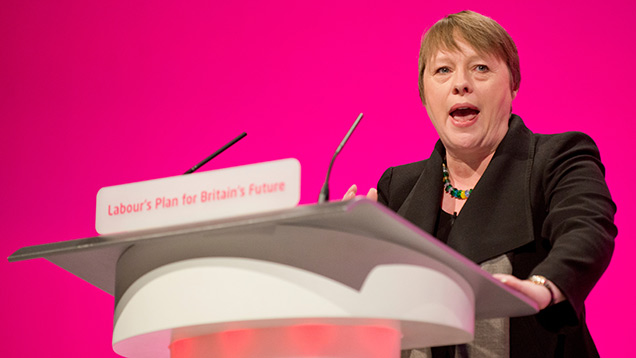We will end low pay for farmworkers, says Labour
 Maria Eagle ©Rex Shutterstock
Maria Eagle ©Rex Shutterstock Labour has promised to set up a task force to tackle low pay for agricultural workers if it forms the next government.
The pledge is contained in the Labour Party’s rural manifesto (downloads as a PDF).
A Labour government will empower the Low Pay Commission to set up industry-led task forces – with employee representation – to raise productivity and pay in sectors with high levels of low pay, it says.
“One of the first of these sector task forces will focus on agriculture, in order to address the damage done by the abolition of the Agricultural Wages Board and ensure agricultural workers are properly protected at the sector level.”
See also: Labour pledges farming strategy and end to badger cull
The manifesto was launched by shadow Defra secretary Maria Eagle on Tuesday (28 April).
She said: “The Tory plan is failing hardworking families in rural Britain. Wages are over £4,500 lower than those in urban areas, while at the same time many rural families face higher living costs.”
The Agricultural Wages Board for England, which set minimum wage levels for farm employees, was scrapped by the Conservative Lib-Dem coalition government in 2013.
Its abolition was welcomed by the NFU but opposed by farmworkers’ representatives.
The NFU had argued that the AWB was making agriculture uncompetitive by imposing unnecessary red tape and bureaucracy on farmers.
The board had become redundant since the UK introduced the minimum wage across all employment sectors in 1999, the NFU claimed.
But supporters of the AWB argued that its abolition gave bad bosses an opportunity to drive down workers’ wages and employment conditions.
Scrapping the board also ended a career structure that set grades for entrants to the industry right through to farm managers.
The Labour manifesto pledges to “further support employers in the sector to raise standards” by giving them more control over skills funding and standards, in exchange for working to increase the number of apprenticeships across the sector.
The document suggests that the agricultural industry will also be granted the power to “stop free-riding employers that do not train [employees], such as the power to set licences to practise for skilled agricultural roles”.
Ms Eagle said Labour wanted to build a rural economy that rewarded hard work and shared prosperity.
She said: “Only Labour has a plan to make our economy work for working people in all of parts of Britain – for those living in rural, coastal and market town communities as well as in cities.”
